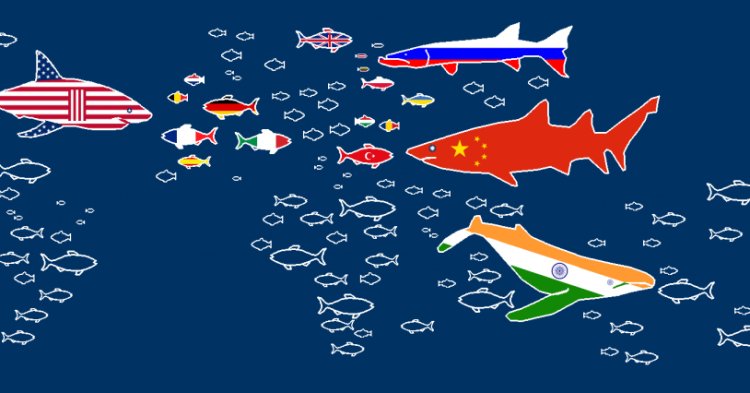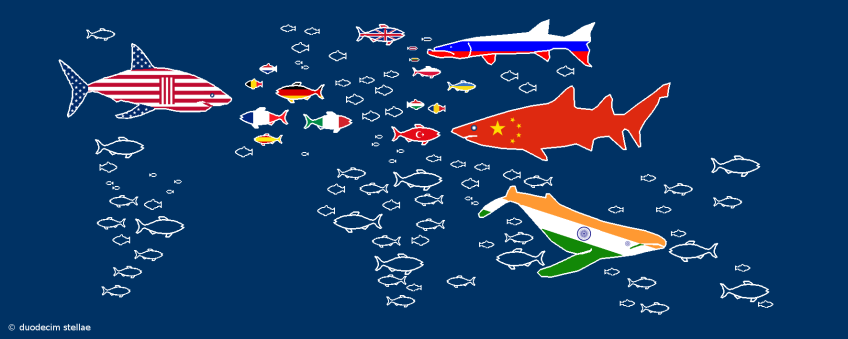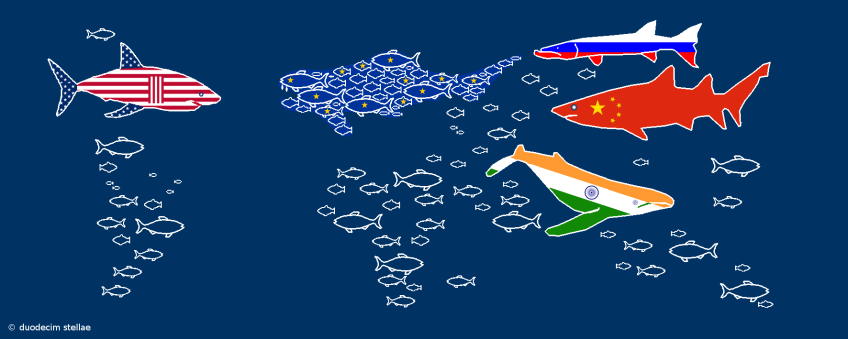Dark horizon: Grexit, Brexit, & right-wing populism
The end of the Greek crisis is not in sight and again people start to talk about a grexit, meaning Greece leaving the Eurozone. In Great Britain there will be elections in May and in England hostile attitudes towards the European Union are becoming more and more popular. Nigel Farage from the United Kingdom Independence Party aims for the disintegration of the European Union. Even David Cameron, the conservative Prime Minister, is promising his voters a referendum about the UK’s EU membership, if he were re-elected. In France Marine Le Pen’s Front National triumphs at the European and local elections. In Italy an ex-comedian presents himself as a political saviour, who wants to free the people from the corrupt parties. But if one takes a closer look, one will see that Beppe Grillo has nothing more to offer than EU-bashing and backward-looking nationalism. In Germany, for the first time in decades, a right-wing political party oposing the European Unity has chances to get elected into the German parliament.
It seems that important parts of Europe want to go back into the age of ordered, culturally homogenous Nations. In fact this age actually never existed and when it was achieved to some degree, we only had death and destruction everywhere. Europeans killed each other because of colourful sheets, called flags. To turn back the wheels of time and to abolish the European Union would be nothing less than the geopolitical castration of Europe. It definitely would not have the effects some of Europe’s opponents are hoping for.
The world waits for no one
In 1950 20% of the world’s population was living in Europe. Today it is only about 10%. Due to this fact and the technological and economic progress in all parts of the world, Europe has lost most of its global influence. This process began in the middle of the 19th century, when European powers ruled nearly half the world. If one tries to identify the political influence of one country its number of inhabitants is always a good starting point. There is a reason why Austria and Belgium are not considered world powers despite the high standards of living there. The most powerful countries in the world are the USA and China. About 1.3 billion people live in china. The United States have about as many citizens as the former Soviet Union, namely 300 million. If one day China has the same level of economic development as the USA on a broader scale, China will be the global world power number one. But what about Europe?
Europe of the dwarfs, ants and amoebas
80 million people live in Germany, the biggest nation of the European Union. About 60 million people respectively live in France, Great Britain and Italy, about 40 million in Spain and Poland. The majority of European Nations have about 10 million or less citizens. On Chinese, Indian, Brazilian or even Indonesian inhabitant scales, even Germany only looks like a giant dwarf in comparison. All the people of Europe together, making up half a billion, would fit more than two times into China or India. At least such a Europe had 200 million citizens more than the USA and these after all are a super power. Europe is not seen as a super power though, because a politically united Europe does not really exist. The EU is put together from different Nations, that all maintain their own army and their own foreign policy, which is actually a large waste of money. The rest of the world takes notice of this disunity and doesn’t see a European giant, but a wild bunch of upstaged dwarfs, ants and amoebas. Trying to restore the sovereignty European nations once had is an idea out of touch with reality in the current situation. The question is not to be governed either by Brussels or by London. The question is to be governed by Brussels, Washington, Moscow, or Beijing in the future.
Europe must change!
An ordinary EU-citizen is not much interested in geopolitics and many are sceptical towards the idea of a pan-European government. There is a lack of European identity, sense of community and many problems in the first place are seen through national lenses. Here the political class could pursue an active European cultural policy, instead of a laissez faire approach. The language tuition in schools needs to be extended and pan-European media should be sponsored (such as Euronews and the German-French TV-Station Arte).
The European Parliament, as well as the European Commission, with its newly democratically legitimised President, should have more power and influence in truly important policy fields. It cannot be the case that really important decisions are made mainly in the European Council, without any Europe-wide democratic legitimation.
The Union and the member states must begin to follow their own geopolitical interests in a more persistent way combined with a greater sense of common European spirit and solidarity, instead of playing a role in the games of European powers. They should stop to permanently orient on America or Russia.
One must stop forcing neoliberal austerity measures on countries suffering under a crisis, dismantling their social standards. The continental European welfare state is one of the biggest civilisational achievements of the twentieth century. Its paradigm was an economic policy for the general public, the majority of people. Who uses Europe for a political agenda lowering the level of living standard for the majority, should not be surprised, when the people turn their back on Europe.
Stronger together
Looking at the challenges Europe is facing in the near future, it seems to be a good idea to take a look back at the lessons we have learned from history, to take a look back at the tradition of Social Market Economy, to take a look back at the roots of the European project, that makes us aware: we Europeans can be proud of our Union. And therefore my perhaps naive appeal to all: Let’s use Europe for the good, let’s inspire the European Dream anew!




Follow the comments: |
|
